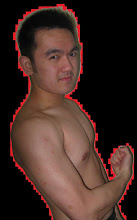Night sweats or hyperhydrosis is a condition that occurs in the middle of the night or at any time you are sleeping. People suffering from night sweats wake up from deep sleep feeling extremely cold or hot, clammy and sweating excessively. Night sweats can be annoying as they disrupt sleep and often lead to insomnia and stress.
Causes:
- Idiopathic Hyperhydrosis - this is a condition where the body sweats excessively without there being any known medical condition.
- Infections - people suffering from infections are prone to night sweats. The most common infection leading to night sweats is tuberculosis. But bacterial infections are also a cause for night sweats, these infections could be endocarditic, osteomyelitis and some times HIV infection or the AIDS virus.
- Cancers - night sweats are one of the first symptoms of cancers especially lymphoma.
- Medications - a combination of certain medications and certain conditions like tumor or infections can lead to night sweats. Antidepressants are the most common cause of night sweats. Other drugs that cause night sweats are niacin, tamoxifen, hydralazine, nitroglycerine, sildenafil which is Viagra. Other drugs are cortisone medications like prednisone and prednisolone that can cause night sweats.
- Hypoglycemia - hypoglycemia is a condition where people suffer from low blood glucose levels. To control the insulin and glucose levels in the body, people who are hypoglycemic need to take insulin shots or oral medication that can cause night sweats.
- Hormone disorders - those suffering from hormonal disorders such as pheochromococytoma, cancinoid syndrome or hyperthyroidism are prone to flushes and night sweats.
- Neurological conditions - those suffering from neurological conditions like autonomic dysreflexia, post traumatic, syringomyelia, stroke and neuropathy are prone to night sweats, and they can also be caused by the medications taken to control these conditions.
- Diabetes Insipidus
- Hyperthyroidism
- Secretion from certain cells in the brain
- Anemia
- Hypothalamic lesions
- Epilepsy
- Strokes
- Cerebral palsy
- Migraine
- Spinal cord infarction
- Head injury
- Familial dysautomia
- Anti-nausea medication used in pregnancy
- Obstructive sleep apnea

1 comment:
chai u taking medical course or mechanical engineering?
Post a Comment